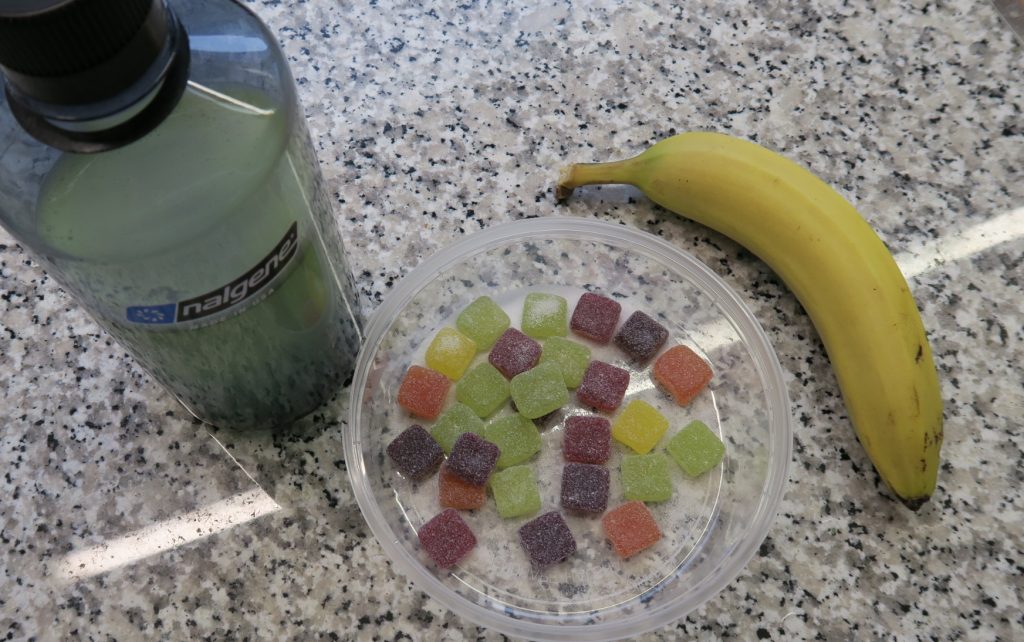
If you’ve ever been involved in athletics or fitness, you’ve likely experimented with workout nutrition at some point. A banana eaten before the gym, a bottle of orange-colored sugar water sipped throughout practice, even that protein bar you ate on your way home after chest day.
And while you probably never thought twice about it, proper pre, intra and post-workout nutrition can catapult performance and muscular gains to the next level.
Let me make something perfectly clear before we dive into this – A strategic workout nutrition protocol is only required for athletes and dedicated trainees looking for the performance edge. If you’re only training to look and feel good (I applaud you for that!), there’s really no need to adopt a specific peri workout routine. Simply make sure to eat a balanced diet and train intensely.
But… “Once you get to an advanced level of development you’re going to have to turn over every rock in order to find the little things that make a difference in getting better, or dealing with stagnation.”
– Charles Poliquin (“The Strength Sensei”)
For the dedicated gym rats out there (you know who you are), the peri-workout protocol revealed in this article is a game changer. If you follow it to a T, you will experience substantial improvements in muscular development, workout performance and recovery. Sounds like a bad supplement scam, right? Rest assured it’s not.
Fuel up
- 1-3 hours pre workout: Have a solid meal with adequate amounts of carbs, protein and fat.
- 30 min pre workout: Have 1-2 servings (25-50 grams) of carbohydrates from fruit, starch (glucose) or sugar. Optional: 10-20 grams of EAA-rich protein (whey/ milk protein or amino acid complex)
- During your session: Consume another 1-2 servings of carbohydrates, add a pinch of salt to your workout drink/ water
- Post workout: Have a solid meal with adequate amounts of protein, carbs and fat within the hour of completing your session. Alternatively, consume a protein and carb shake (1:2 protein to carb ratio).
What’s the best carbohydrate source?
Opt for easily digested, glucose rich carbohydrates such as bananas, pineapple, dates, rice (cakes), oats (instant), or sugar (i.e. Gatorade, gummy bears). Fruit juice and fructose sweetened beverages are poor choices.
There’s no need for designer supplements such as cyclic dextrin, waxy maze or the like. The miniscule benefit they might provide (i.e. faster gastric emptying) doesn’t warrant their price tag. Stick to fruit, easily digested starches, and sugar.

Carbohydrates consumed around your workouts will be burned immediately to fuel performance and optimize recovery. While carbs alone do not stimulate muscle protein synthesis (= growth), they strongly inhibit muscle protein breakdown, granting a net anabolic effect in conjunction with pre and post workout feeding.
Carbohydrates blunt the catabolic effect of exercise and thus your body’s stress response to training. This results in noticeably better workout performance and faster recovery times.
What about protein?
In contrast to carbohydrates, amino acids stimulate muscle protein synthesis and augment the effect of strength training on anabolism. You want amino acids coursing through your veins during exercise. No doubt. Eating a meal in the hours leading up to a workout, however, will keep amino acid levels in your blood elevated, making during workout protein consumption unnecessary (unless you’re training for 1+ hours).
Many protocols recommend timed protein intake, but they do not factor in the gastrointestinal discomfort associated with intra-workout feeding. You might end up feeling bloated, nauseous and gassy (there’s already enough smelly people at the gym… don’t be one of them) during high intensity sessions. Not my idea of a great workout.
Eat a complete meal 1- 3 hours pre-workout, and don’t worry about intra training protein. If, on the other hand, you can’t get in a full meal (i.e. early morning sessions), it is recommended to have a serving of protein (complete protein or essential amino acid mixture) immediately before and during exercise.
Stay hydrated
In addition to the above, I recommend adding a pinch of salt (preferably sea salt) to your workout drink. You know of the importance of magnesium and potassium, but very few actually mention sodium’s vital role in muscle contraction and athletic performance.
Don’t ever restrict sodium intake if you want to perform at your best. Regardless, whether you’re a strength or endurance athlete, you will benefit from adequate sodium intake.
The Anabolic Window

A couple years ago, I, like many of you, believed that in order to build muscle you’d have to eat immediately after completing a workout. Every minute without food or a fast assimilating protein shake would cost precious muscle tissue… so I thought.
Turns out, it’s not really a race against the clock.
There’s no need for protein shakes or additional post workout supplementation, as long as you eat prior to and within an hour after training.
If, however, you can’t get a solid meal in, have a combination of protein and carbs to hold you over. Valid options would be fruit and a protein supplement or milk and another serving of simple carbs. Doesn’t have to be anything fancy. Chocolate milk, for instance, has been scientifically proven to boost recovery on par with many heavily marketed supplements.
It’s not rocket science. You want maximum output? You have to maximize the input. Apply the ultimate performance nutrition protocol, train like an animal and monitor your results. Let the gains begin.
Thank you for reading
Victor
Resources:
Aragon, A. A., & Schoenfeld, B. J. (2013). Nutrient timing revisited: is there a post-exercise anabolic window? Journal of the International Society of Sports Nutrition, 10, 5. http://doi.org/10.1186/1550-2783-10-5
, K.R., , N.A., , S.M., Coingestion of protein with carbohydrate during recovery from endurance exercise stimulates skeletal muscle protein synthesis in humans.
Tarpenning, K. M., R. A. Wiswell, S. A. Hawkins, and T. J. Marcell. (2001) Influence of weight training exercise and modification of hormonal response on skeletal muscle growth. J. Sci. Med. Sport 4:431–446, 2001
Tipton, K.D. et al. (2001). Timing of amino acid-carbohydrate ingestion alters anabolic response of muscle to resistance exercise. Am J Physiol Endocrinol Metab. 2001 Aug;281(2):E197-206.
Valentine, V. (2007). The importance of salt in the athlete’s diet. Curr Sports Med Rep 2007 Jul;6(4):237-4
Volek, J. S. (2004). Influence of nutrition on responses to resistance training.Medicine and Science in Sports and Exercise, 36(4), 689-696.
Wolfe, R.R. (2006). Skeletal Muscle Protein Metabolism and Resistance Exercise. J. Nutr. February 2006; 136(2), 525S-528S
Leave a Reply